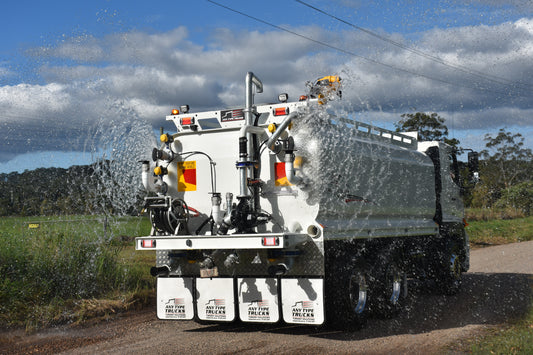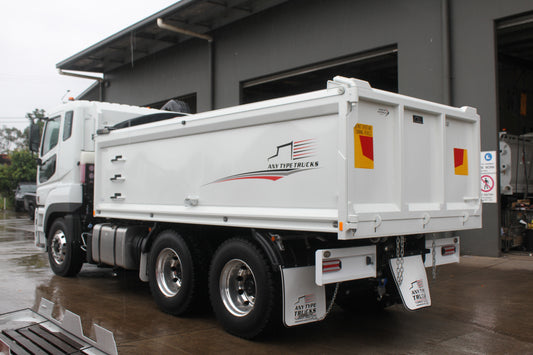🛠️ What Makes a Good Service Truck?
When your gear’s down, time costs money. Whether it's fueling up dozers, topping off hydraulic oil, or fixing a blown hose in the bush, a good service truck isn’t just a toolbox on wheels - it’s a mobile workshop that keeps the job going.
Here’s how we think about what makes a good one.
🚧 How’s it Being Used?
The first question we ask is: What’s the job this truck needs to do? Most service trucks fall into one of three roles:
Refueling: Bulk diesel tanks with pumps, filters, meters - simple, reliable, fast.
Operational Servicing: Regular oil changes, top-ups, filter swaps, regreasing, etc.
Breakdown Support: Tools, welder/genset, air compressor, hose reels, lighting, and the lot. Basically a mobile workshop.
Some trucks are built to do all three. Others need to be lean and focused.
🛞 What’s it Servicing?
There’s a big difference between supporting fixed plant like crushers or gensets, and chasing mobile plant across a site.
Ask yourself:
Are you servicing 20 machines in one location?
Or is the truck travelling north from a South East QLD base of operations to rove around a 50km mine or civil site in support of Bowen Basin operations?
If you’re chasing mobile gear, reliability, self-sufficiency, and layout become critical. If it’s fixed plant, you might prioritise bulk fluids, workshop tools, and lighting.
🌍 Where’s it Being Stocked From?
This one’s often overlooked.
If you’ve got a nearby depot, you can build lighter - smaller tanks, less storage, quicker turnarounds.
If it’s remote field work, you need bulk fuel, oils, parts, and the ability to go days without restocking.
We design around these decisions. Big tanks where they make sense. Easy-access storage where time on tools matters. And plenty of options for lighting, crane setups, and compressor systems depending on where it’s headed.
💰 Is Fuel Being Sold or Just Supplied?
Some service trucks just support your own fleet. But if you're selling fuel to third parties, that changes the game:
You’ll need NMI-certified, legal-for-trade flow meters and pump setups (National Measurement Institute compliant)
Docket systems or integration with site billing
Trade measurement compliance to avoid legal issues
Possibly bunded tanks or additional fire safety requirements depending on where and how you operate
We can build service trucks to suit either case - just make sure it's clear up front, because it affects your layout, hardware, and compliance costs.
🔩 Fit-for-Purpose, Not Overbuilt
A good service truck is tailored. It’s not about throwing everything on - it’s about making sure the operator can work safely, efficiently, and without hassle.
That’s why our ST60 Service Truck is designed with flexibility in mind. Cranes, compressors, tanks, drawer units - all configured to suit the real-world needs of your operators, your site, and your workday.
✅ What We Focus On:
Fit-for-purpose design, not cookie-cutter templates
Durable construction using proven materials and techniques
Custom layout options built around your job, site, and service crew
Safe operation – non-slip decks, isolation switches, LED lighting
Professional finish – tidy hose routing, clean welds, logical layout
Maintainability – easy to service, easy to clean, nothing over-complicated
Every ST60 build reflects our brand pillars:
Utility in the layout, Durability in the structure, Reliability in the systems, Class in the execution, and Style in the finish.
If you’re planning a new service truck, start with the job. Then build around that.
We’ll be sharing more of the thinking that went into our ST60 over the coming weeks — from crane mounts to compressor choices, and everything in between.
📸 Want to see it in action?
We’ve got a full build review of the ST60 Service Truck coming soon. Keep an eye out or [get in touch] to chat through your specs.



